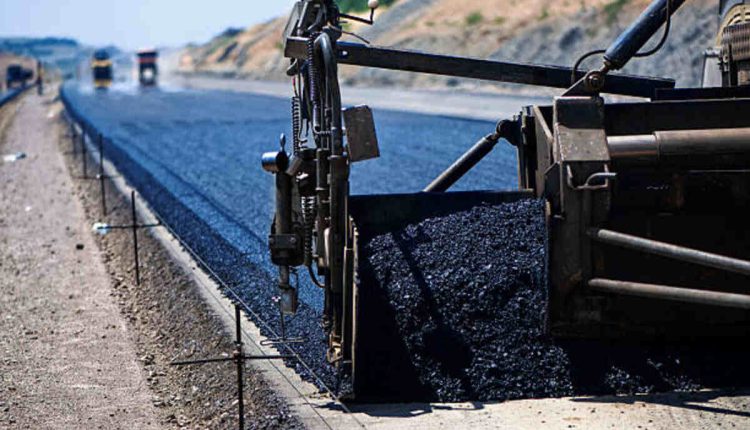Sealcoating asphalt surfaces not only refreshes their appearance but also extends their lifespan by protecting against harsh weather and leakage of automotive fluid, which could otherwise erode at its foundation. Find the best Asphalt Paving in Pittsburgh.
Although asphalt paving and seal coating might appear similar, these two processes serve different functions to provide long-term pavement integrity. Understanding their differences is vital in maintaining the longevity of your asphalt surfaces.
Cost-Effective
Asphalt pavements can be cost-effective options for paving projects when adequately maintained and when left uncovered due to wear and tear from vehicles, weather, and environmental elements. However, asphalt may deteriorate faster than it should. Left untreated, this can lead to costly repairs like potholes and alligator cracking, requiring expensive repairs later on; investing in routine maintenance services like seal coating and asphalt overlays could prevent such expensive repairs in the future.
Sealcoat can give your asphalt an eye-catching black sheen that increases curb appeal, adding aesthetic value and potentially increasing property values.
Sealcoat does not repair cracks but instead provides a protective shield from UV rays and other potentially damaging elements. In particular, sealcoat blocks corrosive fluid leaks from cars, which penetrate asphalt layers and cause erosion, and acts as a water barrier – keeping moisture out while keeping cold temperatures from penetrating deeper into asphalt layers and freezing over.
Protective asphalt seal coating serves to impede oxidation, which involves the breakdown of petroleum binder in asphalt pavements. When this process starts, your pavement becomes more fragile and susceptible to cracking – hence its necessity as part of an effective pavement maintenance strategy. Regular seal coating sessions are, therefore, essential.
Long-Lasting
Asphalt is a highly long-lasting surface, yet like all surfaces, it may deteriorate with age and exposure to the elements. Therefore, regular maintenance services like asphalt paving & seal coating should be scheduled. Sealcoat application by professionals fills small cracks and holes while improving its appearance as well as acting as a protective shield against water penetration that could weaken its foundation and cause lasting problems later.
Sealcoating protects pavement against damage caused by petrochemicals like radiator fluid and gasoline that attack asphalt binders and make them soft, creating cracks that eventually develop into potholes that trap vehicle tires and further erode asphalt pavement.
An excellent asphalt help paving & and seal coating service should employ acrylic polymers that produce lower VOC emissions than coal tar while providing additional characteristics like faster drying times. Incorporating additives may also significantly speed up drying times.
Before selecting an asphalt seal coating contractor, conduct extensive research. When choosing one that specializes in high-quality work and customer satisfaction, read testimonials and look at pictures of previous projects as a way to assess what kind of work they provide. Furthermore, select a company located nearby, so they are familiar with local conditions to guarantee the best possible results from your asphalt project.
Flexible
Asphalt pavement is highly flexible, adapting to temperature variations without becoming rigid or warping under pressure from heavy truck traffic and construction vehicles without cracking under their weight. As asphalt has an extremely high resistance to water damage, seal coating your asphalt can extend its life and shield it from moisture damage.
Asphalt pavement consists of sand and gravel aggregate mixed with a petroleum-based binder. If motor oil or gasoline leaks onto its surface, it can stain it while reacting with its binder, causing rapid degradation. A seal coat helps shield it, block this damage, and slow oxidation. Furthermore, its waterproof barrier function protects surrounding grasses, soils, and waterways from chemicals seeping through to pollute wildlife populations and natural resources.
Over time, the sun can fade asphalt pavement, leaving it looking washed-out or grayish-brown in appearance. Applying a seal coat restores this rich black color to its original hue while improving appearance – ultimately increasing property values! Before sealing your driveway or parking lot, however, be sure to repair any cracks or potholes first – seal coating won’t fix them but will protect underlying structures from further repairs until repairs can be made directly or delayed through seal coating applications.
Slip-Resistant
Asphalt can be an inherently slippery material, yet becomes even less so after receiving fresh seal coat applications. The sandy particles present in seal coats provide vehicles and pedestrians with grip while helping avoid slipperiness that could otherwise pose serious safety and financial risks to both humans and machines who use your parking lot or driveway. This ensures a more slip-resistant experience overall.
Regular sweeping is vital to prolonging the lifespan and aesthetic beauty of asphalt pavement, as debris such as leaves, dirt, and water can reduce cracking over time and extend its longevity. Leaf blowers or quick sweeps with a broom are great tools for keeping pavement clear so you get maximum value from your asphalt investment.
Pavement consists of coarse aggregates such as rocks and gravel held together with an asphalt binder. When exposed to UV rays, rain, chemicals, or any combination thereof, this binding agent begins to break down, leading to potholes, cracks, and eventual loss of structural integrity in your pavement surface. Protecting your investment with regularly scheduled maintenance programs, including seal coating, is critical.
Sealcoating is a process in which liquid acrylic or bituminous products are mixed with silica sand, water, polymer additives, and proprietary fillers to produce a thick liquid mixture that can be either brushed on or sprayed onto pavement surfaces and is projected to double its lifespan with regular application.

